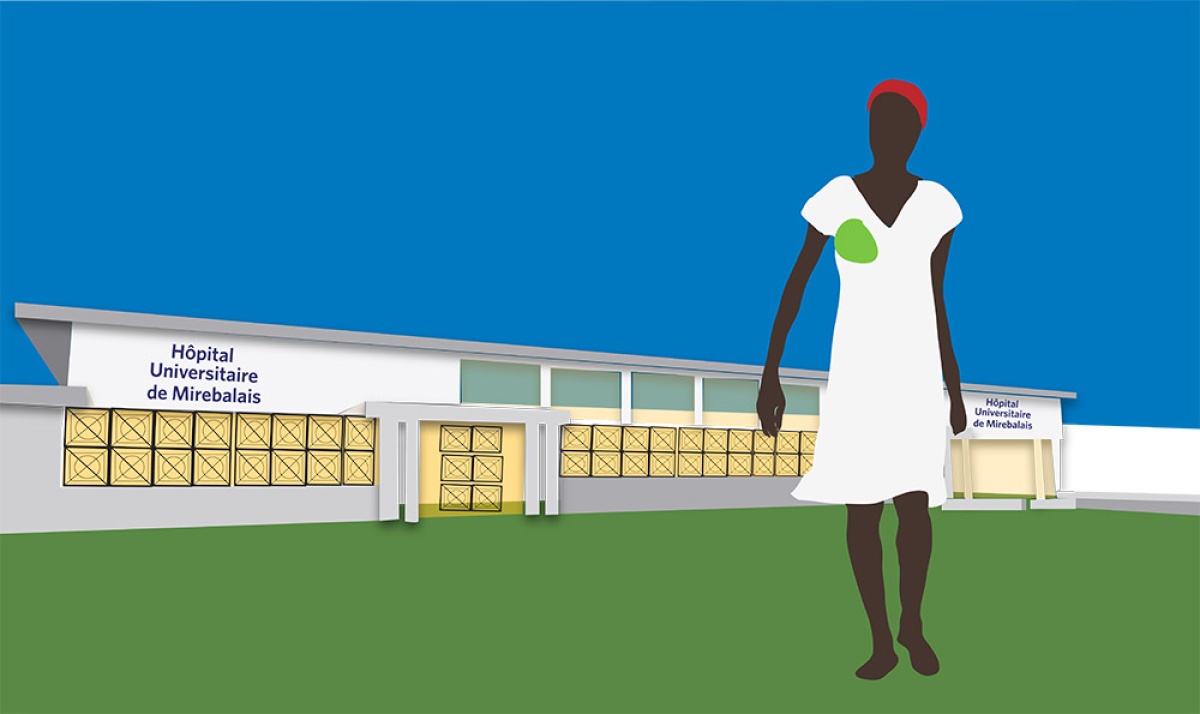The Path of a Breast Cancer Patient in Haiti
Posted on Feb 4, 2016

No one knows exactly how prevalent breast cancer is among women in Haiti, but clinicians who treat the disease see its toll on a daily basis. They say it is aggressive, often strikes young women, and is well-advanced by the time of diagnosis.
In 2015 alone, 1,600 biopsies were performed on patients visiting the oncology department at University Hospital in Mirebalais, which Partners In Health (known locally as Zanmi Lasante) opened in 2013. Nearly 40 percent of these biopsies were breast-related. Women diagnosed with cancer feel the news like a heavy blow, yet they can take comfort in knowing they will receive the best breast cancer care in the country.
University Hospital is the only facility in Haiti—public or private—where patients get a free CT scan and a pathology report that identifies their specific type of breast cancer. Women who come with early stages of the disease have a better chance of an accurate diagnosis and effective treatment. That isn’t true everywhere in Haiti. There simply is no cancer care in many parts of the country. Where it does exist, patients receive inadequate treatment or can’t afford the high fees charged by private institutions.
Every cancer patient who visits University Hospital meets with Dr. Ruth Damuse, PIH’s oncology program director in Haiti. She started treating cancer in Cange in 2010 and has been working in Mirebalais for the past two years. Although she is the hospital’s sole oncologist, Damuse is supported by a fellow internal medicine doctor, a social worker, a psychologist, and a handful of nurses, many of whom have been trained and mentored to provide basic oncology care, such as administering chemotherapy and managing side effects. She also works closely with Dr. Michelson Padovany, who performs most of the hospital’s cancer-related surgeries.
Patients thought to have breast cancer typically undergo a CT scan and a biopsy. Damuse’s team sends the scans to a network of volunteer radiologists based throughout the United States, while biopsies go to the Dana-Farber Cancer Institute and Brigham and Women’s Hospital for pathology tests.
On Fridays, Damuse and her staff connect via teleconference with PIH’s Boston-based oncology team for what they call tumor boards. Referring to case notes and reports from the volunteer radiologists and pathologists, the group decides on a proper treatment plan for up to 15 patients each week. Damuse and her staff then carry out the plan in Haiti.
Depending on the stage of their disease, patients receive a combination of chemotherapy, surgery, and tamoxifen (a drug used to treat and prevent some types of breast cancer). Some women’s cases are so far advanced that the only real option is to ease their pain through palliative care. Whether they have curable or terminal cancer, all patients are encouraged to participate in support groups at University Hospital, where they comfort each other and find strength for the path ahead.
Read more about cancer care in Haiti here.

